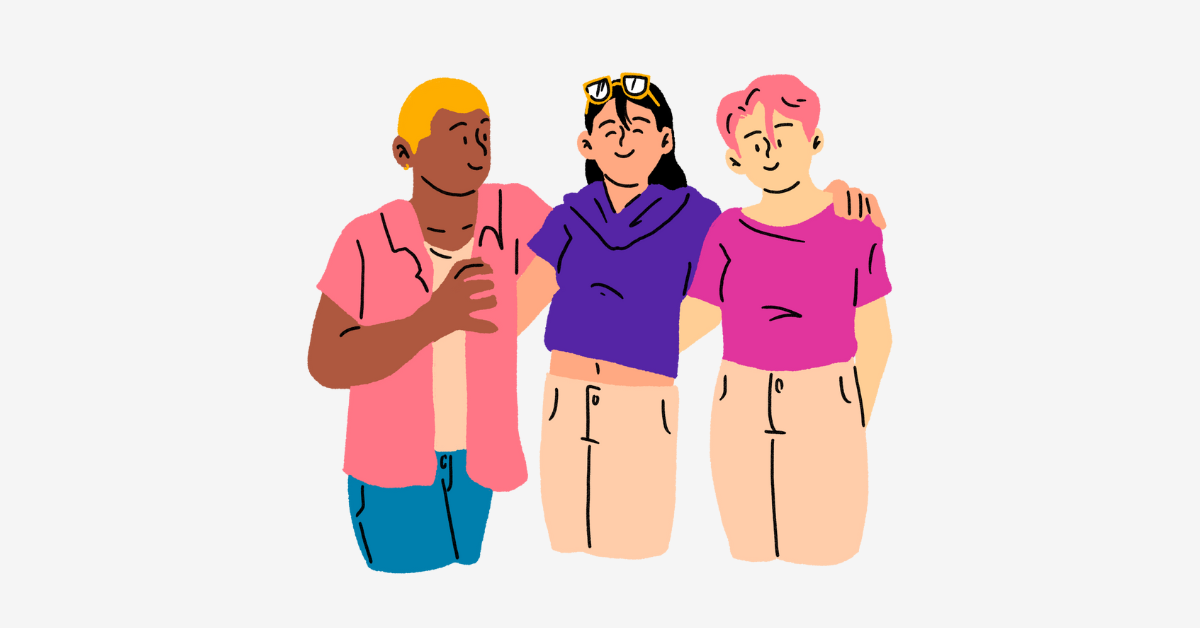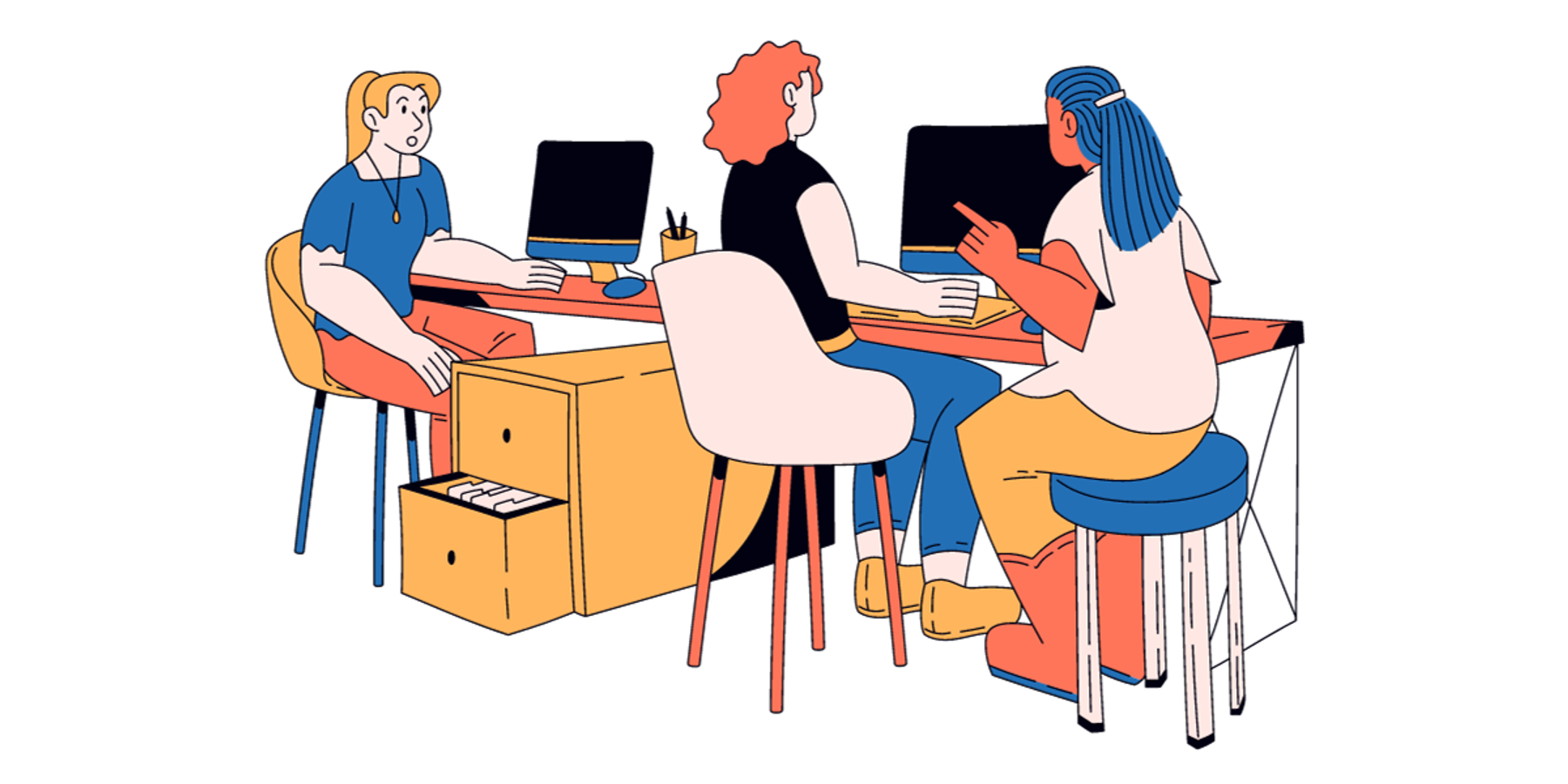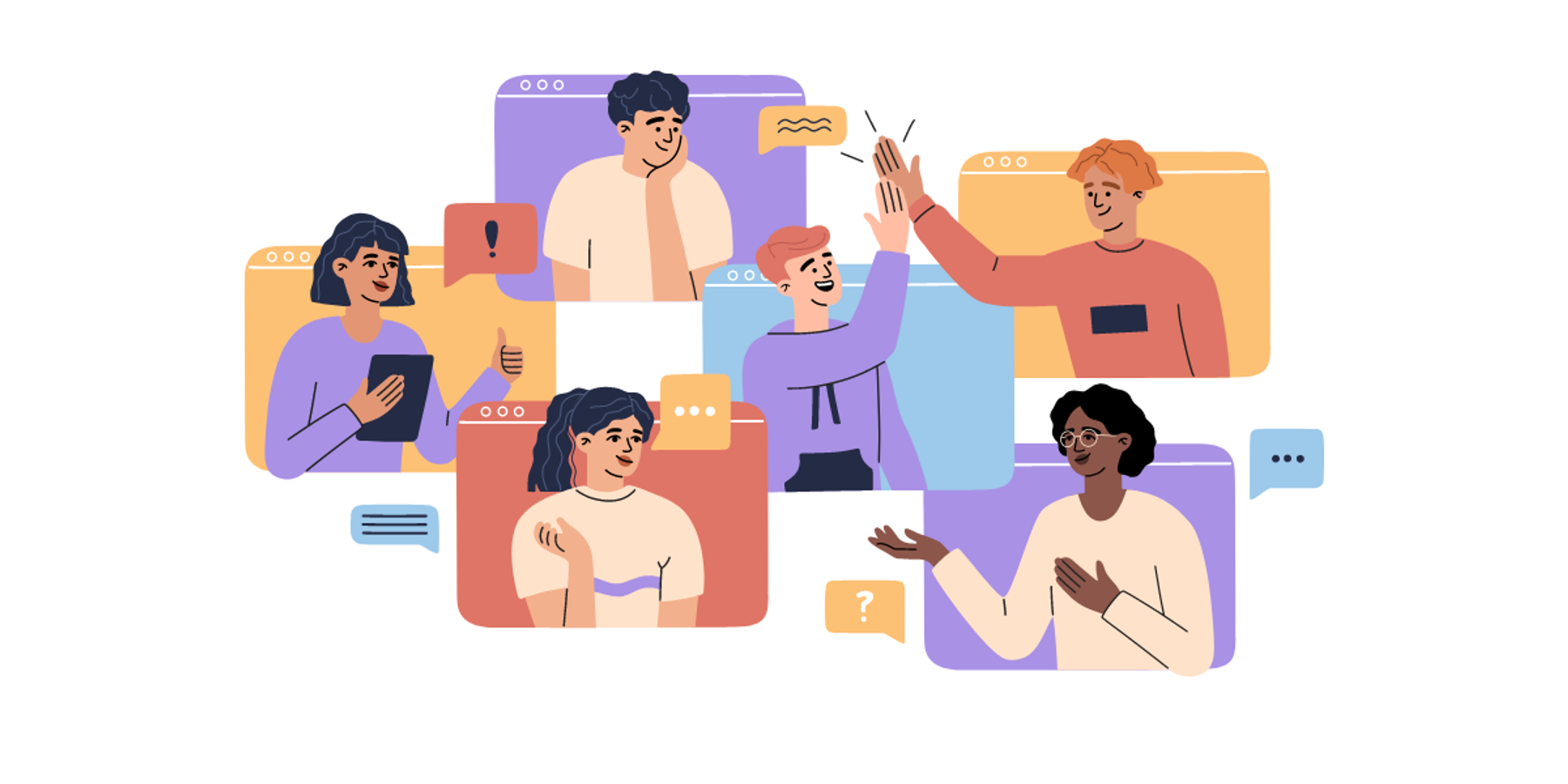It happens every Pride Month. When June 1st appears on the calendar, so do the opportunistic ads that promote LGBTQIA+ allyship and affiliation — until July, at least. Ads like these are often a form of rainbow washing.
Rainbow washing is when companies project an image of LGBTQIA+ inclusion without implementing policies that would make that inclusion a true reality. Many brands roll out rainbow Pride flag logos and figuratively vogue throughout the office during June, or when it otherwise specifically (and financially) suits them. But are these same brands matching that marketing to, for instance, employee benefits that support queer talent year-round? Or devoting resources to protecting the rights of queer and trans workers impacted by anti-LGBTQIA+ legislation?
To LGBTQIA+ staffers, this marketing-forward participation in Pride can feel disingenuous. According to the Human Rights Campaign, 46% of LGBTQIA+ people are still closeted at work, often out of fear of discrimination. That fear makes sense when you consider that 46% is, similarly, the number of LGBTQIA+ employees who have experienced unfair treatment at work due to their sexuality or gender identity, per the UCLA School of Law.
The queer community doesn’t want a company’s “hey, girl, hey” once a year. We need impactful DEIB changes that foster authentic LGBTQIA+ inclusion. Read on for a deeper definition and specific examples of rainbow washing, as well as for tips for building a sense of true inclusion and belonging for LGBTQIA+ talent.
The definition of rainbow washing
Rainbow washing is what happens when a company communicates a false impression positioning its products, actions, or policies as inclusive of LGBTQIA+ people. The term is similar to impact washing and greenwashing in that it also describes unethical company behaviors that falsely claim a positive social impact. Rainbow washing happens all year but is especially acute during June’s international LGBTQIA+ Pride month.
In the worst cases of rainbow washing, companies use a rainbow flag in their logo but actively work against LGBTQIA+ rights by lobbying for and contributing financially to anti-queer political candidates and legislation.
In 2021, U.S. Representative Pramila Jayapal (D-WA) took to Twitter to reveal harmful rainbow washing at multiple companies. These brands sported Pride flag logos and published campaigns about “being yourself” while donating large sums of money to lawmakers openly fighting the Equality Act of 2019, which ensures federal legal protection from discrimination. Prior to 2019, it was legal in many U.S. states for employers to discriminate against and fire people on the basis of being gay or trans.
The importance of the rainbow flag
The rainbow flag isn’t just a bunch of fun colors for t-shirts. It was born from a struggle for freedom against oppressive violence. That violence against the LGBTQIA+ community still continues today.
The rainbow flag was originally designed in 1978 for the San Francisco Gay Freedom Day Parade (now Pride). The rainbow is a symbol for gay consciousness and freedom, and it references everything from gay icon Judy Garland to a Rolling Stones song about beauty.
The original creator of the Pride flag, Gilbert Baker, had this to say about its origin:
“[In the 1970s], the pink triangle was the symbol for the gay movement. But it represented a dark chapter in the history of same-sex rights. Adolph Hitler conceived the pink triangle during World War II as a stigma placed on homosexuals in the same way the Star of David was used against Jews. It functioned as a Nazi tool of oppression. We all felt that we needed something that was positive, that celebrated our love.”
In the past, LGBTQIA+ people had to use symbols like a pink carnation and code words like “friend of Dorothy '' to identify each other and gay-friendly establishments. Now, the Pride flag serves to indicate to LGBTQIA+ people that a place of business is safe for them to enter.
Pride celebrations and the rainbow flag were not created to promote discounts or sell commercial products. They exist as a form of protest and an important marker of safe spaces.
The cost of rainbow washing at work is not mere annoyance. It can drive the isolation of LGBTQIA+ employees and actively damage state and national policy efforts aimed at equality.
Rainbow washing examples
Rainbow washing most often occurs in marketing. At its core, identifying rainbow washing involves seeing a company’s hypocrisy of LGBTQIA+ support from one side of their mouth and inaction or even anti-LGBTQIA+ action from the other. Serial rainbow-washers include some of the biggest brands in the United States. Let's look at specific examples.
Anti-LGBTQIA+ practices
Like many major brands, the company behind Six Flags theme parks regularly features a Pride logo and activities. In December 2021, the Texas-based brand made headlines for anti-gay discrimination when Six Flags Mexico kicked a gay couple off of its Mexico City property for kissing each other.
After the incident, Six Flags turned up the volume on their rainbow washing in a damage-control PR campaign with both tweets and statements from executives. The LGBTQIA+ communities in the U.S. and Mexico both doubt that Six Flags’ response was anything more than lip service.
Anti-LGBTQIA+ political lobbying
According to one closeted gay employee, Atlanta-based Chick-fil-a hires LGBTQIA+ people but subjects those employees to anti-LGBTQIA+ political talking points and hate speech from both fellow employees and customers.
Evangelical Christian and CEO Dan Cathy has made his support for “the biblical definition of the family unit” broadly known in interviews. He donated $3.2 million dollars of company money between 2008-2010 alone to anti-marriage equality lobbying groups.
After an avalanche of protests at Chick-fil-a locations, the company website published a diversity and inclusion statement on their website claiming: “We intentionally promote equal opportunity through our processes and practices.” Meanwhile, Cathy maintains public opposition towards marriage equality, centering religious beliefs at the company.
The United Parcel Service (UPS) engaged in a similar rainbow washing campaign. After being publicly called out in 2019 for donating nearly $2.4 million to anti-gay politicians, UPS responded by saying: “UPS has a longstanding record of supporting diversity and inclusion and it is a core value of UPS culture.”
In 2022, UPS launched a Pride month campaign, complete with a rainbow logo. Whether closeted or out at work, it’s understandable that gay employees of Chick-fil-a, UPS, and other rainbow washing brands would find company support difficult to trust.
Anti-trans policies and practices
Too often the trans community is dismissed, despite the clear T in LGBTQIA+. Performative support for gay people while simultaneously attacking transgender people is not uncommon, even from within the community. This phenomenon is called trans exclusion. Trans-Exclusionary Radical Feminists (TERFs), for example, do not believe that the gender identity of trans women is valid. JK Rowling, famed author of the Harry Potter book series, comes under criticism for TERF-style commentary often, yet her books supposedly have gay male characters.
What happens when this exclusion is expressed at work? Author Kayla Ancrum shared a highly cringe-inducing rainbow washing incident with her Twitter followers. As she put it, her then-company’s “diversity training itself was transphobic.” The result? Screenshots of an anti-trans slide were shared to all 45 employees via Slack, igniting a flurry of reactions. Anti-trans policies and practices in the workplace are not just an HR nightmare. They represent a huge DEIB failure that alienates trans team members as well as allies.
How to foster LGBTQIA+ belonging
There are a number of things companies can do to foster authentic DEIB efforts and prevent rainbow washing from happening.
Stop sexualizing LGBTQIA+ people
LGBTQIA+ people are confronted with a double standard at work. Non-LGBTQIA+ people talk about their families, dating relationships, and social lives openly. But when LGBTQIA+ people engage in this chit-chat, they are sometimes told they have inappropriately broadcasted their sex lives.
A study by the Human Rights Campaign found that 59% of non-LGBTQIA+ employees think it’s inappropriate to talk about sexual orientation at work. Thirty-six percent feel uncomfortable talking about dating with LGBTQIA+ colleagues. Nearly 1-in-5 (18%) of LGBTQIA+ employees have had a coworker make sexual comments to them after revealing their sexual orientation.
To avoid this pitfall, educate employees that talking about dating and/or dating partners isn’t inherently sexual. Hold more effective DEIB training. Want to avoid your own Slack disaster? Consider bringing in an outside DEIB consultant to lead these conversations.
Offer queer-friendly benefits
Make your official stance clear by ensuring that your employee benefits support LGBTQIA+ folks’ lived experiences. Reevaluate family benefits to include various paths to parenthood, like surrogacy, adoption, or an unmarried partner giving birth. Include gender transition surgeries or hormone replacement therapy in medical benefits. Establish policies that ensure partner benefits, equal pay, 401(k) matching, student loan repayment assistance, and financial counseling for LGBTQIA+ staff.
Financially support ERGs and LGBTQIA+ community organizations
If the company relies on your LGBTQIA+ ERG as a resource, fund it. How?
- Pay ERG leaders
- Fund conference attendance
- Subsidize professional memberships
- Budget for Pride events
Offset the millions of corporate dollars given to anti-gay causes each year by openly and generously funding LGBTQIA+ community organizations. Build employee and community trust by referencing the causes you support in your DEIB statement. Include further information and resources on your website.
Real change is not rainbow washing
LGBTQIA+ employees and customers need real change — not marketing gimmicks, and certainly not hypocrisy. A lot of progress has been made towards LGBTQIA+ belonging, but gay and trans rights are still under attack in many places across the country. Pride is a protest against the discrimination that LGBTQIA+ people confront every day. The rainbow flag represents a rightful claim to freedom and joy in life, including at work. Companies can authentically support queer people through benefits, community giving, and employee education.




